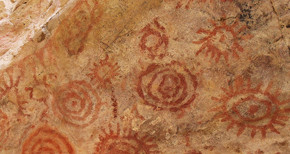Amendment #2 Q & A
Voting has ended. Thank you for participating in this important decision.
The Board understands it has a responsibility to remove harassers and keep members safe.
In many cases, sanctions for assault or harassment, especially Title IX violations, are not public documents. Even when Title IX findings are shared, they frequently do not name individuals. Many sexual harassment cases in the private sector are settled out of court. In other cases, non-disclosure is a condition of a settlement. In these kinds of situations, SAA and others may not know about the existence of the case and its resulting settlement.
Yes, they will apply to all members, including student members.
Full Text of Q: Why was the phrase "or for other reasons at its discretion" added to Article IV, Section 13, #1? Why should the board be able to terminate the membership of someone who has NOT violated established SAA standards? This seems to give the board unnecessary power, which hypothetically could be abused at some point.
A: The intention behind this language is to allow for Board action in scenarios where an individual exhibited harmful behavior that is not explicitly covered in SAA standards, or cases where no finding is presented but harmful behavior is still clearly documented. For example, an individual who is found not guilty by a Title IX investigation, but who later publicly confesses to the actions described, or who resigns from a position or institution before an investigation is complete, could still pose a threat to the safety of the meeting, and the Board feels that it would be justified in acting to protect the members, despite having no record of an official sanction.
Since the Board cannot foresee all potential scenarios, this language provides a tool to protect members by removing individuals who are engaging in clearly harmful behavior. A requirement for a 3/4 vote of the Board is still in place to act as a check against arbitrary termination of membership.
(To see the full text of Amendment #2, including the changes to Article IV: Membership, Section 13 — Termination of Membership, #1, please see the full ballot.)
Full text of Q: I adamantly oppose the inclusion of having the recommendation of the Bylaws Committee in the voting procedure. Why can't people just read the bylaws amendments and vote for themselves. Why are we telling people what to think? This is not an unbiased vote.
A: When amendments are submitted, the Bylaws Committee is required to complete a review and deliver its recommendation to membership. (Article XV Section 1). We felt that the simplest way to deliver this recommendation was by including it in the ballot so that it was readily available to the voter. The recommendation is purely formal; members are still free to vote for whichever amendment they feel best represents their views.
SAA is a sponsoring organization of the Register of Professional Archaeologists (RPA), along with the SHA, AIA, and AAA, and that relationship will not change as a result of this referendum. SAA considers RPA’s grievance procedure to be a valuable tool for adjudicating the behavior of registered professionals within archaeology, as the RPA has built-in due process and fact-finding mechanisms. However, SAA must also ensure that its own meetings are safe for all attendees, and that requires being prepared for cases where accused individuals may not be RPA members. In these cases, Amendment 2 provides SAA with the limited adjudication authority necessary to act swiftly in protecting our meetings and ensuring harassers do not have a platform within our organization.
The Board affirms its intention to continue to partner with RPA, and in the case of either amendment being adopted, the Board considers RPA an “adjudicating” or “administrative” institution. This means that an RPA finding would be considered legitimate grounds for SAA to take disciplinary action against an individual, but SAA is not required to have an RPA finding in order to act against an individual who presents a threat to meeting safety.


